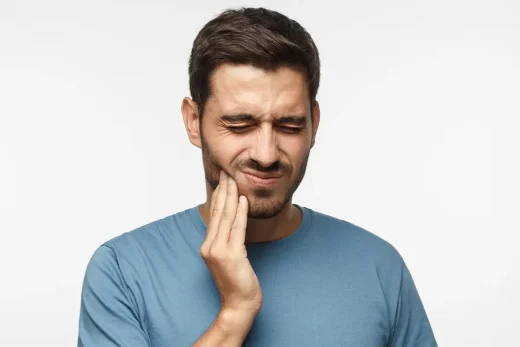Don’t let your face turn sour during the holiday!
After a month of Ramadan, Ramadan Feast came. We relieved our teeth during the month of Ramadan with a regular oral care. However, with the start of the holiday, no matter how much we want to avoid sweets and sugar treats, we cannot refuse these treats due to cultural reasons. This can cause our whole holiday to be painful and unhappy.
Experts warn us to pay attention to oral hygiene in order to prevent toothaches that may occur when we do not have the chance to avoid such foods.
Dentist Ahmet Altın from Erdem Oral and Dental Health Center, who gave information on preventing toothaches that turn into agony during the holiday, said, “Even though we attribute different meanings to Ramadan, I cannot think of a child who does not dream of gelatin bags full of holiday candies, or an adult who does not whet his appetite for fresh home baklava. In this respect, Eid-al-Fitr is not only a feast of candy for children, but also for adults. However, if this “sugar” is not taken care of, it can lead to “painful” results, especially in the bodies that have swelled up after a month of starvation.
An important issue to be considered about health on this holiday is oral and dental health and hygiene. It is simply known by everyone that sugar consumption causes tooth decay. But this is just the “Look, you’re eating too much sugar, your teeth will rot!” It is not as simple or pass-through as in the sentence.
What causes tooth decay is the acid produced by some kinds of bacteria that are present in our mouth more or less but constantly, as a result of their own nutrition, and the loss of substances called “demineralization” starting from the outer surface of the tooth. So while avoiding dental caries, the aim is to serve our own appetite, while not feeding the bacteria that rot our teeth.
Foods that cause cavities are not only called sugar. All kinds of sweets and similar carbohydrate foods that have settled in our culture may return to us as dental caries. No matter how much we want to avoid such foods, we cannot refuse sweets and sugar treats during holiday visits due to some cultural reasons. In the end, our only solution is to pay more attention to oral hygiene.” said.
Don’t forget to use dental floss during the holidays!

In order for the formation of dental caries to begin, the bacteria must multiply in a certain time in the mouth and the bacterial plaque must mature. In this respect, effective brushing twice a day and then using dental floss will greatly benefit us.
Effective brushing means; Our toothbrush is to brush all the surfaces of all teeth (inner, outer and chewing surfaces), together with the gums, from one to the other, separately for the lower and upper jaws. The most important benefit of tooth brushing is the mechanical cleaning we have done. For this reason, instead of waiting for a miracle from the content of the toothpaste we use, we should clean all the surfaces of our teeth with the help of a brush. The most common places of plaque and indirect caries formation are recessed chewing surfaces of teeth, surfaces between two teeth and tooth-gingival junctions. These areas should never be skipped while brushing teeth. With this information, it is necessary and beneficial to clean these areas with dental floss, since the toothbrush cannot fully reach the interdental surfaces even when brushing with good intentions.
Apart from brushing your teeth twice a day, even rinsing your mouth during snacks and when your brush is not with you will be very useful.
If you can’t brush your teeth, chew tooth-friendly gum!
Another method is to neutralize the acidic environment in the mouth and reduce the acid effect. For example, increasing saliva flow by chewing gum reduces the acid effect. Also, although the sweeteners in tooth-friendly gums are sweet, they are not like the sweets we know and do not cause tooth decay.
In summary, we should pay attention to; It is like avoiding caries-causing foods as much as possible, squeezing it into times when we can brush our teeth immediately after meals (for example, after dinner), trying to use dental floss, rinsing the teeth after meals when we cannot brush teeth, chewing sugar-free or tooth-friendly gum.